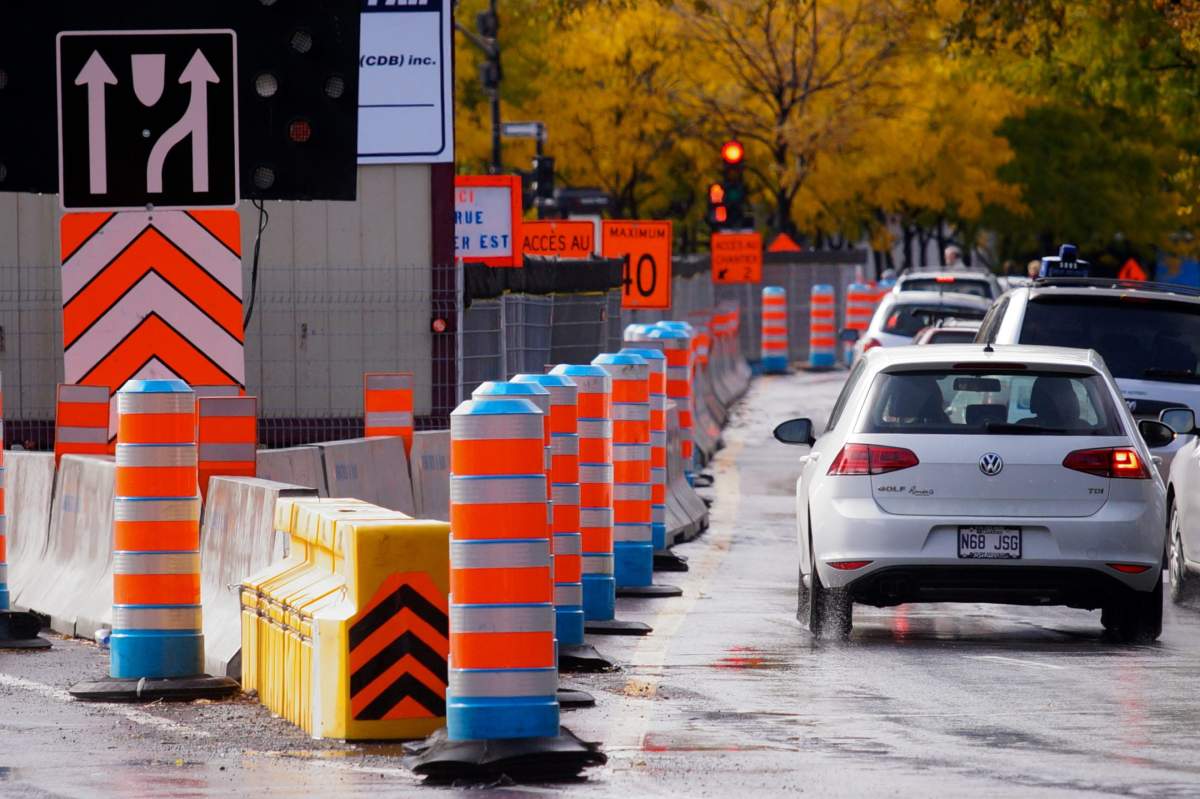Quebec’s economy and energy minister is under fire for lamenting there are “too many cars” on the province’s roads, with public transit advocates and experts arguing the government isn’t doing enough to fix it.

Pierre Fitzgibbon pointed specifically to Montreal’s traffic-jammed streets in an interview with le Journal de Québec earlier this week.
“Look at Montreal. Montreal no longer works,” Fitzgibbon said. “On weekends, there are too many cars.”
He also deplored the number of bigger vehicles that have a larger fuel consumption, saying they are “what causes the problem in transport.” Quebec’s automobile insurance board reports the total number of vehicles registered on the Island of Montreal has only slightly increased in recent years, but the number of light trucks jumped by 13 per cent in 2021 from 2017.
Fitzgibbon urged municipalities to act — such as with the recently adopted Bill 39, which gives, under certain conditions, the power to cities to hike licence renewal fees to fund public transit.
But critics argue the Coalition Avenir Québec government is leaving people with little choice but to drive. Trajectoire Québec which advocates for better public transit, wants the province to step up.
“The ironic part is having a minister of a government saying we have to decrease the number of cars and not having the same government investing more in public transit,” said general director Sarah V. Doyon in an interview Wednesday.

The Quebec government recently tabled its budget for the upcoming year, but it doesn’t include new public transit projects. The amount of money being spent on new public transit infrastructure projects is also on the decline.

Get daily National news
“Right now we are not able to develop services,” Doyon said. “We are not going forward with many infrastructure projects. So obviously no one can abandon the car right now if we are not increasing public transit services.”
Montreal Mayor Valerie Plante quickly sounded the alarm, saying last week she is worried about a lack of funding for public transit. While the Francois Legault government has its own goals of reducing gas emissions, Plante explained “there’s not tons of solutions to that,” and said that it has to come from boosting public transit.
Jérôme Laviolette, a McGill University department of geography post-doctoral researcher who studies sustainable mobility, said it’s good that Fitzgibbon acknowledged a problem.
But it’s difficult to get around from one city to the next or from one region to another without a car, he added. Quebecers need “better mobility options” to ditch their wheels.
“I think it’s a shame because the government does not realize the responsibility it has in helping people,” Laviolette said.
Doyon agrees, saying if “we want to decrease the number of cars on the road, we have to make sure to offer people alternatives.”
If Quebec truly wants fewer cars on the road, Laviolette says that kind of change also comes down to stronger urban planning.
“The government needs to invest in public transit. That’s one of the keys,” he said. “But it also needs to be, better aligned with a better urban planning policy.
“We need to make sure that it comes with density, with a diversity of land use, so that people can travel to destinations without even requiring a car.”
— with files from Global’s Annabelle Olivier and The Canadian Press




Comments